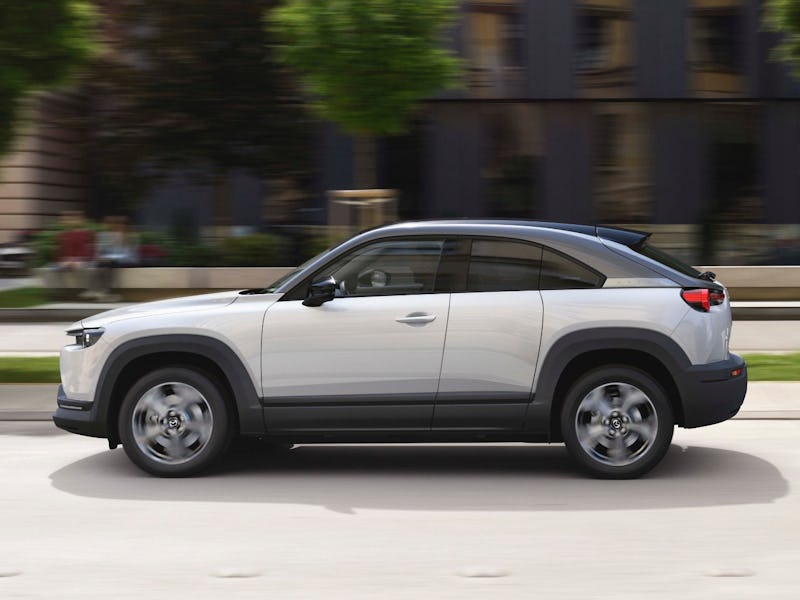Mazda’s MX-30 hybrid extends its range by reviving the rotary engine
The 2023 MX-30 hybrid will draw on Mazda’s once-novel engine technology.

Mazda’s famed rotary engine is coming back. The automaker says it’s planning on bringing its rotary engine design for the upcoming MX-30, a hybrid crossover.
The rotary will act as a type of generator that keeps the MX-30’s batteries charged for longer — a clever way to repurpose the groundbreaking design for an EV age.
Mazda already offers a 2022 model of the MX-30 that’s fully electric in the U.S., but this 2023 rotary-equipped model of the MX-30 will be a plug-in hybrid.
Rich rotary history — The Mazda brand and the rotary engine go hand-in-hand. While the rest of the auto industry was busy with traditional piston engines, Mazda went against the grain and opted for a rotary engine for the first time in one of its cars in 1967.
Mazda’s history with the rotary engine dates back more than 50 years.
There are certain benefits to the rotary, like a much smaller and lighter form factor, a design that includes fewer moving parts than traditional engines, and a quieter and smoother operation. Mazda’s adopted the rotary engine design for a few of its cars, including its classic coupes, pickups, and minibus. The rotary engine design remained until 2012 when Mazda stopped production of its adored RX-8.
Repurposed rotary — Now, Mazda is repurposing the rotary engine as a way to extend its range, starting with the MX-30. The current MX-30 has an unimpressive range of between 100 to 124 miles. Mazda is expecting to increase the range to up to 248 miles for the upcoming MX-30 thanks to the addition of a rotary battery extender.
Mazda’s 2023 MX-30 should get a lot more range thanks to a rotary extender design.
We won’t see the MX-30 with the rotary design until January when it debuts at the Brussels Auto Show. However, the updated MX-30 could arrive as early as March 2023, according to Motor1.
Mazda’s repurposed rotary engine could differentiate the Japanese car maker’s offerings from the rest of the market. It will still have to compete with the likes of other fully electric crossovers like Volkswagen’s ID.4, Toyota’s bZ4X, and Hyundai’s Ioniq 5 that already have competitive ranges.
This article was originally published on